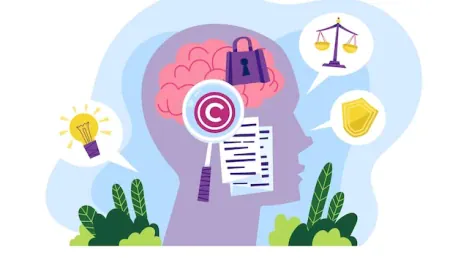The ongoing debate about the relevance and necessity of intellectual property (IP) laws has recently been reignited by influential tech figures such as Elon Musk and Jack Dorsey. Both tech moguls have expressed a desire to see current IP regulations dismantled, claiming they hinder innovation and benefit gatekeepers rather than the creators themselves. This proposition has sparked significant discourse within the technology sector, exposing a divide between proponents of freer creative domains and those concerned about fair compensation for creators.
The Case for Abolishing IP Laws
Innovation Over Restriction
Elon Musk, CEO of Tesla and owner of X, has long been vocal about his belief that IP laws do more to stifle innovation than protect it. In support of Dorsey’s recent call to abolish these laws, Musk argues that the existing system primarily serves those who can afford to enforce IP rights rather than the inventors or creators. He believes that the protection IP laws offer is outweighed by the limitations they impose on technological and creative progress. Musk’s 2014 Tesla patent pledge, in which he promised not to litigate against genuine users of Tesla’s patents, reflects this philosophy, suggesting a more open approach to intellectual property could promote technological advancement and accessibility.
Dorsey, co-founder of X, advocates for a complete overhaul of IP laws, asserting that they siphon too much value from creators and primarily benefit rent-seeking entities. He envisions alternative models where creators are compensated more fairly and directly, without intermediary institutions that profit disproportionately. This perspective suggests that the liberation from stringent IP constraints could catalyze innovation, making technological advancements more freely available and encouraging collaboration rather than litigation.
AI and IP: A New Frontier
In recent years, the rise of artificial intelligence (AI) has added a new layer of complexity to the IP law debate. Companies like Meta Platforms have faced lawsuits over the alleged use of pirated content to train their AI models, igniting discussions about how IP laws apply in an age where data is integral to technological development. Musk and Dorsey point out that outdated IP regulations are ill-suited to address the nuances of AI innovation, which relies heavily on vast amounts of data often protected by traditional IP laws.
Some experts, such as Chris Messina, propose modernizing IP enforcement, especially where AI is concerned. He suggests automated IP fines for AI infringements as a viable alternative to the current system. This approach would enable creators to receive compensation for their work used in AI development, without stifling innovation through protracted legal battles. However, critics argue that such an automated system could result in unforeseen consequences, possibly exacerbating issues of fairness and exploitation.
The Arguments Against Abolition
Protecting Creators’ Rights
Critics of Musk and Dorsey’s stance argue that abolishing IP laws could leave creators vulnerable to exploitation, potentially depriving them of deserved earnings. Ed Newton-Rex, among others, contends that IP protections are essential for ensuring creators receive fair compensation for their work. The abolition of these protections could lead to a scenario where larger, wealthier entities freely exploit the work of smaller creators without due compensation, ultimately weakening the incentive to create.
IP protections historically aimed to provide creators with a tangible return on their intellectual investments, thereby encouraging continued innovation and creativity. Dismantling these protections, opponents argue, could lead to a devaluation of creative labor. This dearth of protection might hinder individual creators, who often rely on the security and income provided by IP rights to sustain their work and livelihoods.
Balancing Protection and Progress
The debate’s complexity lies in balancing the protection of creators’ rights with the need to foster technological progress. While proponents of IP abolition argue for a freer, more collaborative environment for innovation, critics emphasize the necessity of providing a framework that ensures fair remuneration for creative and intellectual efforts. Thus, the issue demands nuanced solutions that promote innovation while maintaining equitable compensation for creators.
One suggested middle ground is the reform rather than the abolition of IP laws. By adapting existing regulations to address current technological realities, particularly in the data-driven AI sector, it is possible to protect creators without stifling innovation. This approach could include more flexible licensing models or time-limited protections that allow for eventual public domain entry, balancing initial creator rewards with long-term public benefits.
Future Considerations
Developing Fairer Models
As technology continues to evolve, particularly with AI’s exponential growth, the challenge remains to create IP frameworks that are both fair and conducive to innovation. Dorsey’s vision of alternative compensation models offers a starting point for this exploration. Developing systems that allow for direct payment to creators or automated compensation mechanisms linked to actual usage could be potential solutions. These models would require extensive testing and refinement but could ultimately offer a more balanced approach to IP management.
The tech industry faces a critical juncture where thoughtful consideration of how to equitably distribute the benefits of innovation is essential. Collaborative efforts between policymakers, industry leaders, and creator communities will be vital in crafting frameworks that are both progressive and equitable.
Ensuring Equitable Access
The ongoing debate surrounding the relevance and necessity of IP laws has recently been reignited by influential tech figures like Elon Musk and Jack Dorsey. Both of these prominent tech leaders advocate for the dismantling of current IP regulations. They argue that these laws stifle innovation and primarily benefit gatekeepers, rather than the actual creators. This proposition has generated significant conversation within the technology sector, uncovering a rift between those who support a freer creative landscape and those who believe in upholding fair compensation for creators. Musk and Dorsey argue that loosening these controls could lead to unprecedented innovation and unrestricted sharing of ideas. However, critics worry that without IP laws, there would be little protection for original work, potentially leading to exploitation and misuse. The ongoing discussion highlights the complex balance between fostering innovation and ensuring that creators receive fair recognition and rewards for their contributions.









